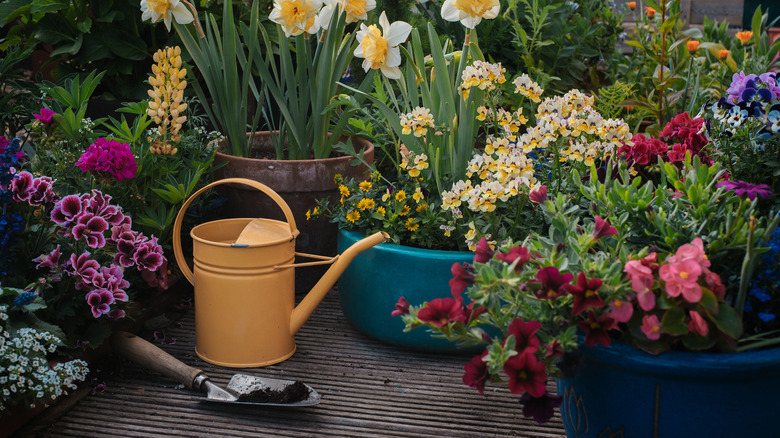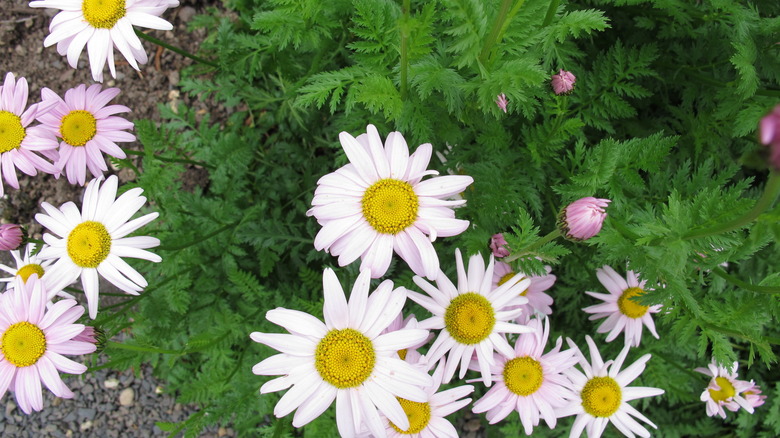The Popular Flowers Some Gardeners Grow To Deter Ticks (& Does It Actually Work?)
Ticks are insects that you really want to try and deter from your garden and your outdoor living areas because they carry a range of diseases, including Lyme disease. In an effort to use more environmentally friendly solutions to repel pests such as ticks. Some gardeners choose to grow one popular flower you may already be familiar with. Commonly known as the pyrethrum daisy (Tanacetum coccineum), this pretty flower contains a natural insecticide called pyrethrin. Also called a painted daisy, this gorgeous flower is a garden pest's worst nightmare.
Farmers are turning to plants such as the pyrethrum daisy to try and keep their property tick-free and pest-free in general, so this should be a good indication that growing these beautiful flowers in your garden or in large containers should help to deter ticks from your yard. In addition to pyrethrum daisies, which are members of the aster family, there are various other flowers you can grow to ward off bugs and other pests in your garden.
How to take advantage of the tick-repellent nature of pyrethrum daisies
To take full advantage of the natural insect repellent properties of these lovely flowering plants, you might like to grow them in pots or containers that you place around your outdoor living spaces. These pretty perennials can be successfully grown in USDA hardiness zones 3 through 7 and come in a wide range of flower colors including white, pink, purple, red, and yellow. Not only do these attractive plants have the possibility of deterring ticks and other pest insects from your outdoor areas but they will also help to brighten up the spaces with their happy and colorful blooms.
You can grow pyrethrum daisies in full sun or part shade in free-draining potting soil. Deadheading the spent flowers will encourage more blooms right into the fall. The flowers can also be cut and will look pretty when displayed indoors in a vase. They may even have the ability to deter mosquitoes from your home thanks to their pyrethrin content.
While these delightful flowering plants are said to deter annoying insects, they may also attract pollinators such as bees and butterflies because the active pyrethrin is generally extracted from the seeds. Just remember that pyrethrum daisies have an irritating toxin in its sap and leaves that could cause contact dermatitis in certain individuals, but planting some on your property is one good tip for keeping ticks out of your yard.

